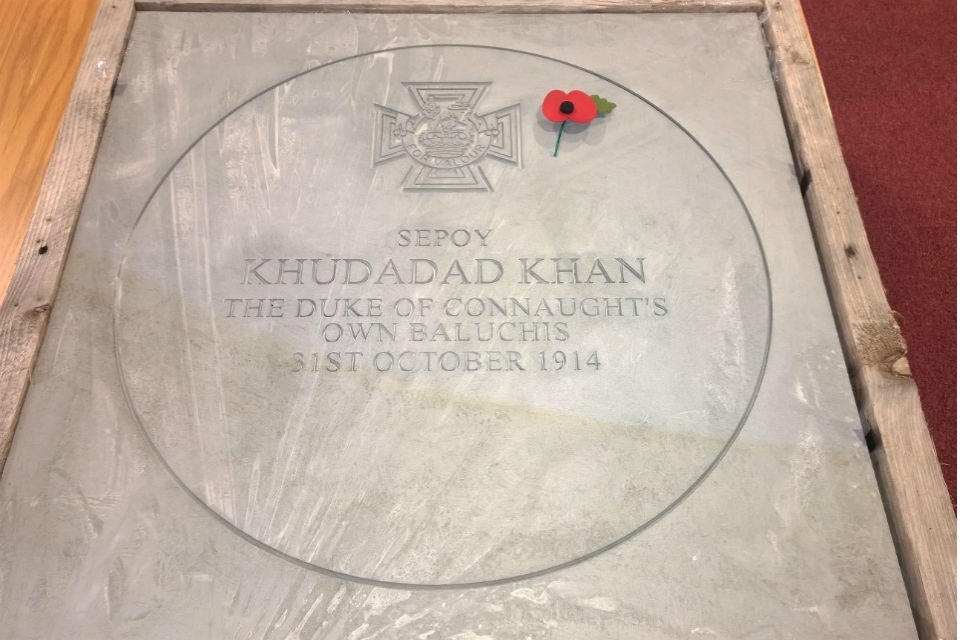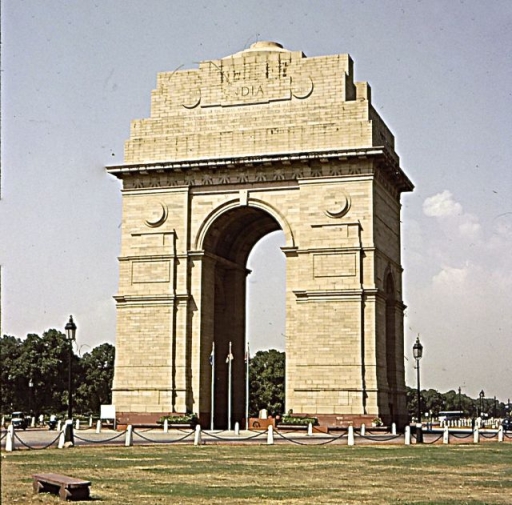British ministers have led tributes to Indian soldiers who fought in the First World War. The ceremonies in Delhi and London coincided with the 100th anniversary of the colonial Indian Army going into action for the first time on the Western Front at the Battle of Ypres in October 1914.
During a visit to Delhi, the Defence Secretary, Michael Fallon, laid a wreath at the India Gate. The memorial commemorates 82,000 soldiers from undivided India who died in conflicts from 1914-21.
Mr Fallon also hosted a large-scale remembrance event at the British High Commission (embassy) on October 30th 2014, unveiling memorials to the six Victoria Crosses won by soldiers who came from the current territory of India.
He presented them to India’s Minister of Defence, Arun Jaitley, along with digitised war diaries of the India Corps that fought in France and Flanders.
India’s first VC
In London, the Communities Minister, Lord Ahmad, took part in a special event at the British Library honouring Khudadad Khan, the first Indian and Muslim recipient of the Victoria Cross.
The 36-year-old sepoy won Britain’s highest award for gallantry for his actions at Hollebeke, near Ypres, on October 31st 1914. Despite being badly wounded, he continued firing as all his comrades lay dead after their position had been overrun.
Lord Ahmad praised Khudadad Khan’s ‘exceptional loyalty, courage and determination in Britain’s fight for freedom.’
More than a million troops from British-ruled India (now India, Pakistan and Bangladesh) fought overseas during the First World War. Sepoy Khudadad Khan, who was born in the Chakwal district of present day Pakistan, served with the 129th Duke of Counaught’s Own Baluchis.
He will be among 144 overseas-born Victoria Cross recipients honoured with the laying of commemorative VC paving stones at the National Memorial Arboretum in Staffordshire on March 9th 2015, Commonwealth Day.

(Photo courtesy of UK Department of Communities & Local Government)
Two former heads of Britain’s armed forces – General Lord Dannatt and Lord Richards of Herstmonceux – as well as the Oxford historian, Sir Hew Strachan, are among signatories who’ve highlighted Khudadad Khan’s courage in a joint letter to the Telegraph newspaper.
They say: “It is important today that all of our children know this shared history of contribution and sacrifice if we are to understand fully the multi-ethnic Britain that we are today.”
To read the full text of the letter, go to the Telegraph website.
Sources: UK Department of Communities; Ministry of Defence; Daily Telegraph
Images supplied by Department of Communities & Local Government (VC memorial); Peter Alhadeff, Centenary News (India Gate)
Posted by: Peter Alhadeff, Centenary News
